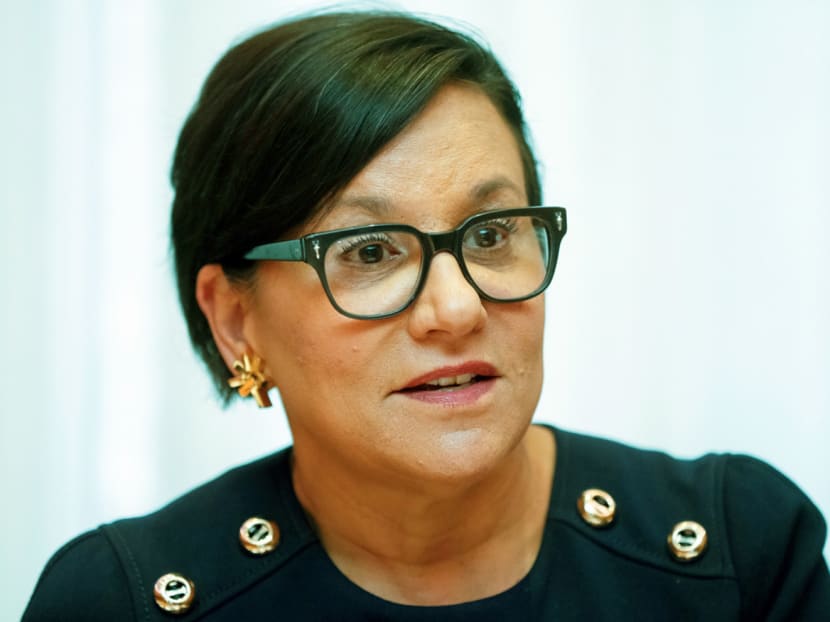Tariffs on China will mean tariffs on US imports, says Beijing
WASHINGTON — Senior Chinese officials have warned the US that Beijing is ready to retaliate if Mr Donald Trump’s incoming administration imposes new tariffs, highlighting the risk of a destructive trade war between the world’s two largest economies.

US Commerce Secretary Penny Pritzker says confrontation with China will cause a major consequence for America. PHOTO: REUTERS
WASHINGTON — Senior Chinese officials have warned the US that Beijing is ready to retaliate if Mr Donald Trump’s incoming administration imposes new tariffs, highlighting the risk of a destructive trade war between the world’s two largest economies.
Ms Penny Pritzker, the outgoing US Commerce Secretary, said in an interview with Financial Times that Chinese officials had informed their US counterparts in a meeting after November’s election that they would be forced to respond to trade measures taken by the new administration.
“The Chinese leadership said to me ‘If you guys put an import duty on us we are going to do it on you’,” said Ms Pritzker. “And then they said: ‘That will be bad for both of us’.”
She said that the next administration needed to decide “the fine line between being tough and a trade war”, cautioning that such a confrontation would have an “enormous consequence” for the US.
The move highlights the concern in China over the risk to relations presented by Mr Trump, who has also offended Beijing by breaking with traditional US policy on Taiwan.
Japanese officials and top executives also pushed back against Mr Trump, warning on Friday of fallout for US-Japanese trade and investment if the President-elect followed through on his call to impose a border tax on Toyota to stop the carmaker from building a new plant in Mexico.
Mr Trump has put a tougher stand on trade at the centre of his economic policy and appointed a team of China hawks and avowed protectionists to oversee his trade policy.
He has pledged to label China a currency manipulator and threatened to impose punitive tariffs of up to 45 per cent on Chinese goods, although incoming members of his administration have played down both commitments since the election.
Mr Trump and his advisers argue that since China’s 2001 entry into the World Trade Organization it has been competing unfairly and has caused the loss of millions of American jobs, particularly in manufacturing.
Recent studies by economists have put the total job losses in the US associated with Chinese competition at more than 2 million, with many of those in areas that voted heavily for Mr Trump in November’s election.
But Ms Pritzker said that Mr Trump’s zero-sum view of China as stealing US jobs was “too simple a characterisation”. She argued that Chinese policy is now focusing on developing domestic industry to take the place of imports.
“If it was so terrible, why would American businesses continue to want to do business in China?” she said. “But I think that the Chinese posture ... towards foreign-developed products is changing towards favouring indigenous developed products ... That’s the issue I think that faces the next administration.”
The outgoing commerce secretary said that the US continued to be concerned about what she called the “lack of a level playing field in China”. She cited issues ranging from poor intellectual property protection to Chinese overcapacity in steel production. She also defended recent US scrutiny of growing Chinese direct investment, which reached a record US$45.6 billion (S$65.6 billion) last year.
The Obama administration last month blocked a Chinese bid for Aixtron, a German chip equipment manufacturer. Beijing has also long complained that its companies face more scrutiny than others from the Committee on Foreign Investment in the US, which reviews investments on national security grounds.
“It’s not inconsistent to say we welcome foreign investment and yet we want to protect our national security. I think it’s not inconsistent to say we welcome foreign investment but don’t dump your stuff here ... That’s fair in open trade,” said Ms Pritzker.
“You have to adjust for basic imperatives and our national security is really critical.”
But she warned the incoming administration that a recent boom in foreign direct investment in the US could be vulnerable to any increase in protectionism.
“I think the competition is very stiff and I don’t think we should take for granted the fact that the United States has been the number one place in the world to invest for the past four years,” said Ms Pritzker.
“Many of the companies that invest here do so because of the ability to make here and sell elsewhere. BMW is a great example. They export more cars from the United States than they do from Germany. We want that. It’s great. It’s good for America. Those are good American jobs.”
Ms Pritzker, a billionaire businesswoman and heiress to the Hyatt hotels fortune, also raised questions about the incoming president’s use of social media to single out companies such as General Motors, Ford and Toyota in recent weeks over their decisions to put factories in Mexico.
“There’s a lot of ways to make change and the bully pulpit is one. Policy is another. (But) you can’t do policy in short headlines. It’s complex,” she said. FINANCIAL TIMES









